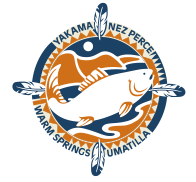![Meeting in the ivied halls of the University of Idaho. [left to right] Paul Lumley, CRITFC executive director, Joel Moffett, CRITFC chairman, Arthur Taylor, University of Idaho Indigenous Affairs Liaison, and Tana Atchley, CRITFC workforce development. —photo by Shawn Narum, CRITFC](https://critfc.org/wp-content/uploads/2013/10/uofi-photo-226x301.jpg)
Meeting in the ivied halls of the University of Idaho. [left to right] Paul Lumley, CRITFC executive director, Joel Moffett, CRITFC chairman, Arthur Taylor, University of Idaho Indigenous Affairs Liaison, and Tana Atchley, CRITFC workforce development. —photo by Shawn Narum, CRITFC
University of Idaho President Don Burnett and Provost Kathy Aiken agreed to create a joint task force comprised of university and CRITFC staff, including University of Idaho Indigenous Affairs Liaison Arthur Taylor and CRITFC Workforce Development Coordinator Tana Atchley. The program will likely include undergraduate and graduate opportunities in fisheries and natural resource management. Core components of these efforts will emphasize strong support services and programs for tribal students.
Since 2005, CRITFC has contracted more than $9 million, including $2.3 million in CRITFC contributions to construct the Hagerman Lab.
Tribal Biologist Traineeship Opportunity
Under the direction of Dr. Jan Boll, the University of Idaho recently received funding for the Integrative Graduate Education and Research Traineeship (IGERT) program through the National Science Foundation. The research will be to develop analyses and decision support tools to evaluate alternative salmon, lamprey, and watershed restoration strategies, especially with respect to water quality; altered ecosystem function due to climate change and dam operations; toxic contamination of food products (e.g., mercury in salmon); and to develop biological parameters that can be incorporated into models that predict vulnerability of fish populations under scenarios of climate change. This interdisciplinary program will provide graduate students with funding that covers tuition and provides a $30,000 stipend for 2 years. They are particularly interested in recruiting within tribal fisheries programs. Interested candidates should contact Dr. Jan Boll at jboll@uidaho.edu for more information.
